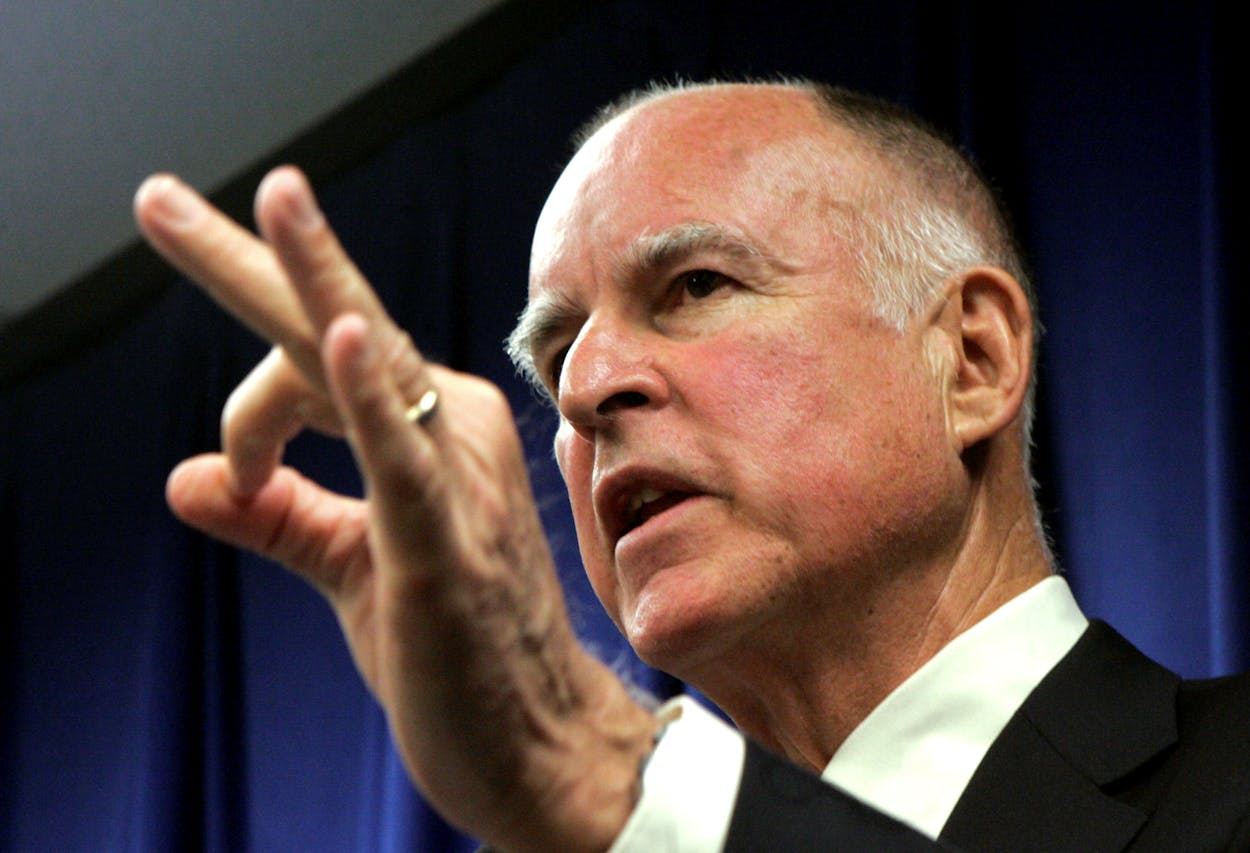How did California Governor Jerry Brown respond to Rick Perry’s $24,000 radio ad to lure California businesses? He called it “barely a fart.”
Brown continued, “It’s a big nothing,” claiming that businesses, in fact, were pouring into California. “Everybody’s coming. . . . Look, when you’ve got something good, people want to be here,” Brown retorted.
So which cheeky governor is right? *
The ad campaign is only one of Texas’s many ongoing strategies to make the state an Eden for large businesses. An annual $19 billion pool is allotted for tax breaks and other business-related incentives, and since 2003, the Texas Enterprise Fund has helped hook out-of-state companies by offering generous cash subsidies.
Between 2003 and 2009, Texas saw 28,000 new jobs created by out-of-state businesses or branches moving to the state, reported the San Francisco Chronicle. Texas exceeded California in job creation for the majority of the time since the ebb of the recession, but California took the lead for parts of 2012. Regardless, Chief Executive magazine has ranked Texas the “Best State for Business” for eight years in a row.
Anecdotal evidence suggests that businesses are drawn to Texas’s appealing corporate climate. As the Chronicle noted, when California company Xeris Pharmaceuticals moved to Austin in 2010, its CEO John Kinzell said, “Texas has never created that kind of, you know, regulatory spaghetti bowl.”
CEO of CKE Restaurants Andrew Pudzer plans to open 300 new Carl’s Jr. chains in Texas, but has said he will not open any more in California. He threatened to relocate the headquarters, too, but was persuaded otherwise by a personal appeal from Brown.
When California businesses do leave for Texas, many seem to end up in the Austin area–possibly due to the city’s young tech culture, which is reminiscent of the Bay Area. The Chronicle adds that of the 225 businesses that moved to Austin between 2004 and 2011, 63 were from California.
Despite the Lone Star State’s best efforts, though, evidence suggests most Californian millionaires aren’t going to pick up and leave because of a tax bump. Reuters cites a 2012 study that found that more millionaires moved into the state than left after the introduction of California’s Millionaire’s Tax in 2005. And though the number of millionaires in California fluctuates by about 10,000 per year, this is largely due to shifts in the state economy and thus to people’s personal economic situations–not their coming and going. Migration, Reuters notes, accounted for only 47 people on average.
Moving, of course, carries its own cost. As The New York Times pointed out in a story about California’s tax hikes on millionaires, moving “means leaving behind family, friends, colleagues, and business connections.”
Many Californians decide to bear the higher taxes because, well, they like living in California, Brown argued. “People invest their money where these big things have occurred,” he said. “The ideas, the structures, the climate, the opportunity is right here on the Pacific Rim.”
*CORRECTION: An earlier draft of this piece suggested that Rick Perry’s radio ad was paid for by taxpayer dollars. In fact, it was funded by TexasOne. We regret the error.






